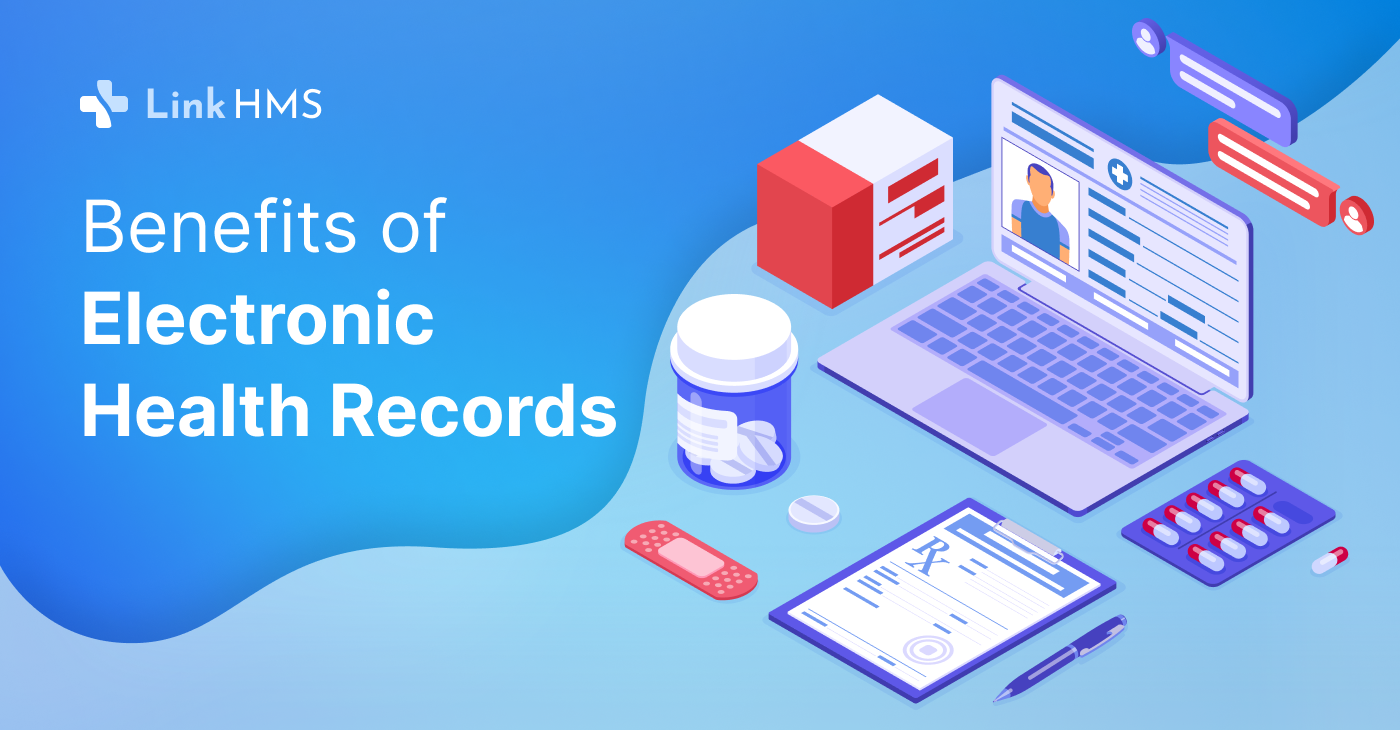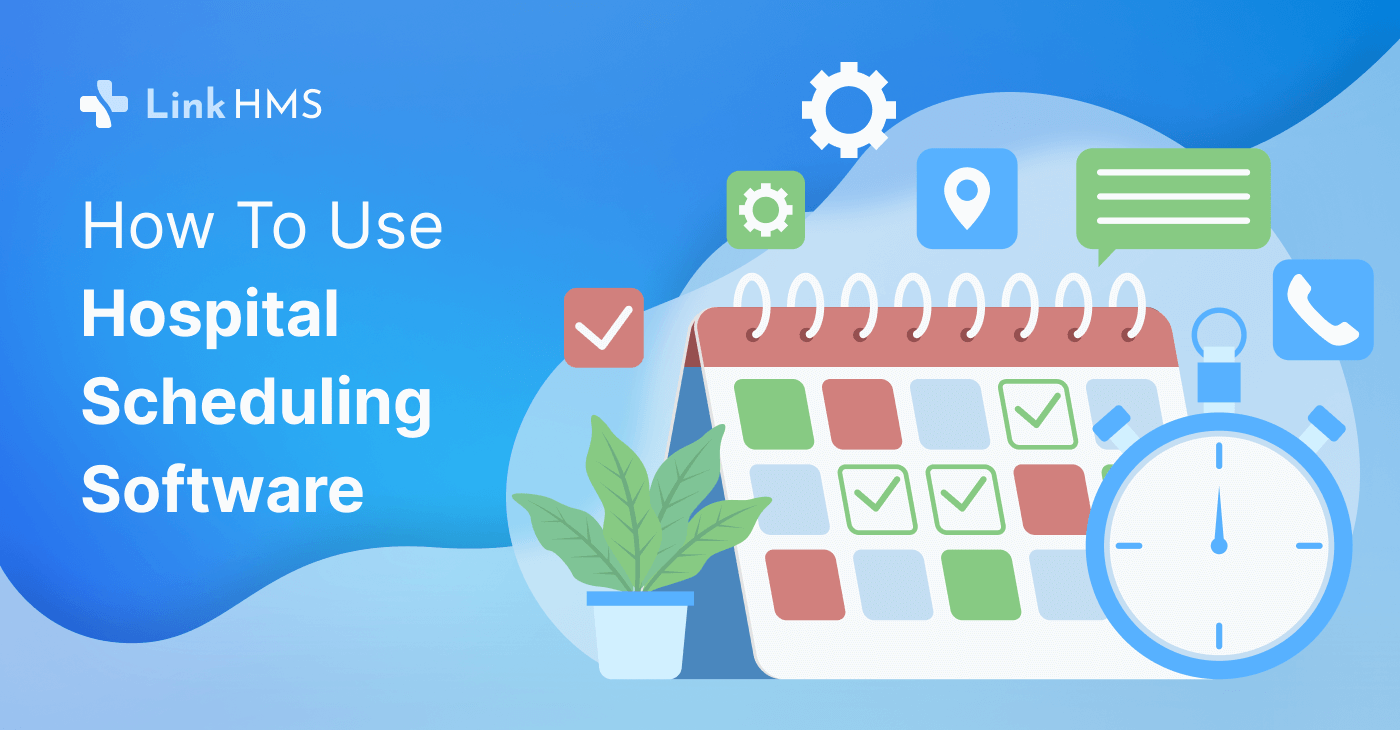
It’s common practice to look at the benefits of electronic health records (EHRs) from the perspective of the healthcare facility – smoother operations, better data management, and improved compliance. But have you ever considered the specific benefits they bring to the parties at the core of healthcare: patients, doctors, or nurses?
- Electronic health records lead to more personalized and coordinated care. Accurate records empower patients to participate in their health journey through patient portals and real-time information access.
- EHRs provide doctors instant access to patient histories, lab results, and treatment plans. Decision support tools, medication alerts, and integrated prescribing features help reduce errors and support clinical judgment.
- Nurses benefit from improved workflow efficiency and better communication between departments. They can now spend more time providing care rather than managing paperwork.
The benefits of electronic health records support new outcomes for every party involved in the care process. So, let’s dive into additional advantageous specifics regarding the mentioned users.
List of the content
Importance of electronic health records
EHRs have come a long way from being digital paper file versions. They bring all of the patient’s medical information into one secure digital platform. Different health-related records are commonly stored and processed on the cloud to ensure quick access and better coordination.
The importance of EHR has increased as healthcare providers move toward digital solutions for managing patient records. According to the statistics, the EHR market is expected to reach $43.66 billion by 2034. If any healthcare facility is questioned about its positive impacts, everyone confirms the undeniable benefits of electronic health records for all engaged parties.
From doctors and nurses to administrative staff and patients, EHRs simplify access to accurate, up-to-date information, which leads to faster decision-making and more coordinated care. They help reduce duplication of tests, minimize errors, and streamline everything from scheduling to billing. Patients remain more involved in their care by providing easier access to their medical history and treatment plans.
Benefits of electronic health records for patients
It’s worth saying that EHRs can transform the way patients experience healthcare. It contributes to better outcomes with the medical history access, timely care, and open communication with providers. So, what are some of the benefits of electronic health records for patients?
- Faster care. Quick access to patients’ records helps avoid delays in treatment. EHR supports more informed and faster decisions that greatly save time during appointments.
- Better communication. It is easier to keep patients informed and involved in the care process. EHRs contribute to open communication when receiving updates or contacting doctors through patient portals.
- Easy access to records. Patients have no problem checking their medical history, test results, prescriptions, and visit summaries anytime they need. It shares vital information and contributes to better health condition tracking.
- Fewer repeated tests and procedures. EHR supports coordinated and accurate care across the entire system. It reduces the chance of confusion or repeated tests and procedures.
- Reminders and follow-ups. It also supports consistent patient care and the following of practitioners’ recommendations. Patients can receive automatic alerts for upcoming appointments, routine checkups, vaccinations, or medication refills.
- Safer data storage. EHRs make health data remain private and available only with authorised access. Digital systems store data securely with encryption protection and access controls.
- More involvement. With the granted access to medical records, patients can better understand their health, ask informed questions, and follow care more closely. It supports the active participation of all involved parties.
EHR becomes an inevitable component that helps patients stay more involved in their care and have access to their health information. This builds better communication and trust between patients and providers.
Benefits of electronic health records for doctors
The real benefits are always about making doctors’ work easier and more efficient. Therefore, EHRs focus on offering quick access to health data, supporting accurate diagnoses, and simplifying daily tasks. Below are the key benefits of using electronic health records by doctors in clinical practice.
- Fast access to complete patient history. The full medical history with past diagnoses, lab results, and prescribed medications provides more informed decisions. It considerably saves practitioners’ time and effort, and makes them rely on accurate data.
- Easier note-taking and record-keeping. When the EHR systems keep health records organized, doctors emphasize simpler and faster documentation. It often lets doctors type or just dictate notes directly into the patient’s file during or after the visit.
- Right diagnosis and treatment planning. As patient data is accessible in one place, doctors can more easily spot patterns, track progress, and compare current symptoms with past visits. The comprehensive overview of patients’ conditions supports tailored care for each patient.
- Better collaboration with other medical staff. In many cases, doctors need to urgently share relevant patient information with nurses, lab workers, or other healthcare team members. Getting everyone on the same page improves care, reduces errors, and prevents miscommunication.
- Simple prescription management and e-prescribing. With the adoption of EHRs, doctors can send prescriptions directly to pharmacies. It’s faster and more convenient for all involved parties. Besides, doctors can quickly check medicine interactions as prescriptions are collected in one system.
- Reduced risk of medical errors. Accurate digital records reduce confusion and minimize medical mistakes. EHR systems commonly include alerts for drug allergies, dosage limits, and other safety checks. It becomes easier to enhance the standards and safety of patient care.
It’s a known fact that doctors are now empowered with quick access to patient data, improved decision-making tools, less paperwork, and better coordination across care teams.
Benefits of electronic health records for nurses
Digital systems have transformed the way nurses provide care by replacing numerous paper-based processes. Electronic records open quick access and make everyday tasks like documentation, communication, and monitoring easier.
- Simple patient data entry and retrieval. Nurses can access digital records with just a few clicks, quickly input and access necessary patient data. It saves time compared to paper charts and helps find critical data like past treatments or allergies instantly on the doctor’s request.
- Improved communication with medical personnel. Nurses’ responsibilities commonly include sharing patient updates with doctors and other staff through the centralized EHR system. It dramatically enhances teamwork, reduces misunderstandings, and prevents delays in care.
- Easier tracking of vitals, medications, and labs. EHRs automatically organize and store patient vitals, prescription schedules, and lab results. Nurses gain the efficient tools to monitor trends over time and quickly spot issues or changes, which allows them to stay on top of the patients’ conditions.
- Real-time updates on patient conditions. As all changes in a patient’s status and treatment plans are instantly recorded in the EHR, nurses see the latest information for quicker and safer care. It improves response times and decision-making during care.
- Smooth care coordination. The shared digital system connects all departments: nursing, lab, pharmacy, and doctors. The coordinated workflows improve efficiency and reduce duplicate work within continuous care.
- Reduction in manual errors and redundancies. Secure, accurate health records simplify handling documentation for nurses. It reduces the risk of duplicating entries, forgetting tasks, or even mistakes caused by illegible handwriting.
The benefits of electronic health records for nurses mainly include reducing workload, lowering stress, and increasing the accuracy of clinical tasks.
Conclusion
EHRs have an immense influence on better, safer, and more connected care. It positively contributes to the daily experience of the involved parties, like patients, doctors, and nurses alike. As a result, it helps to build more coordinated healthcare environments where the needs of everyone are met due to the highest standards. It changes care priorities by shifting the focus from administrative tasks to meaningful, patient-centered interactions and informed decision-making.
FAQs
What is an electronic health record (EHR)?
It is a digital version of a patient’s paper chart. EHRs contain comprehensive health information such as medical history, diagnoses, medications, immunization dates, allergies, lab results, and treatment plans.
Are electronic health records secure?
EHR systems use advanced encryption, access controls, and regular audits to protect patient data. Healthcare providers are also required to comply with strict data privacy regulations, such as HIPAA or GDPR, to ensure data confidentiality and integrity.
How does EHR help reduce healthcare costs?
Your practice can lower costs by minimizing paperwork, reducing duplicate tests, and preventing medication errors. Faster access to complete medical records helps providers make better decisions and avoid unnecessary procedures.



